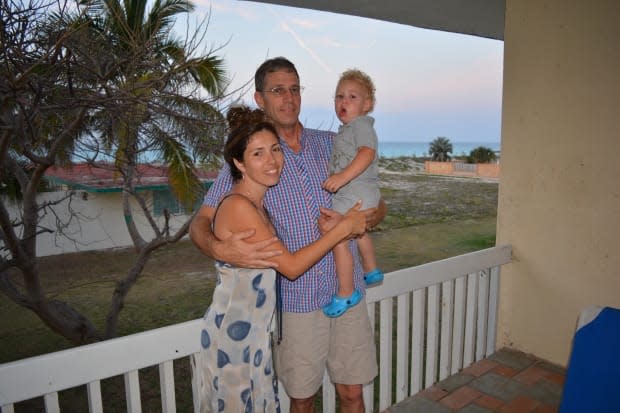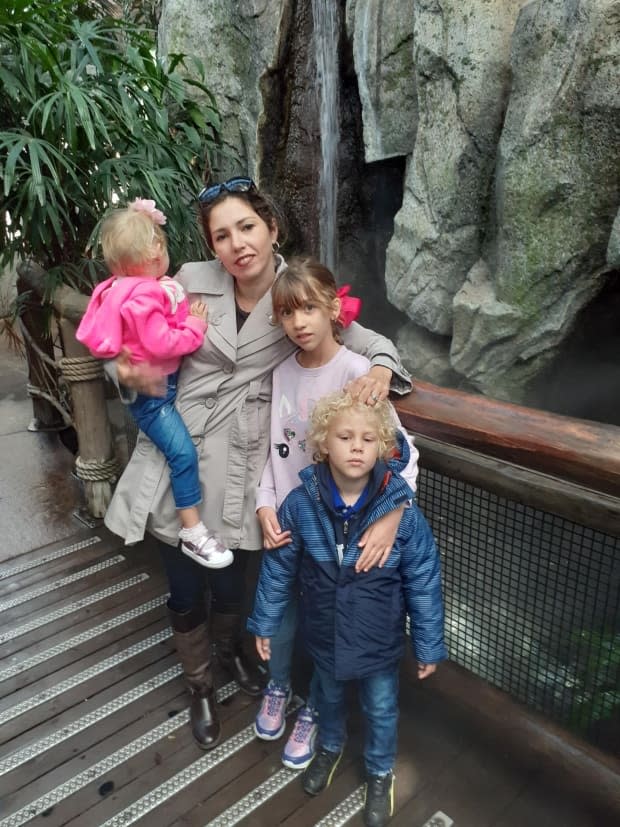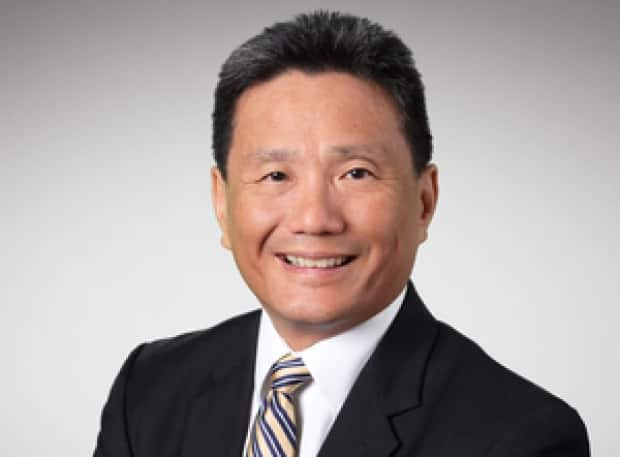Canadian-Cuban family kept apart for nearly a year due to delays in visitor visa application

A southern Alberta man has been going through an "immigration hell," as his lawyer calls it, that has left his common-law wife and two young children stuck in Cuba for almost a year due to delays in federal officials renewing her visa.
Greg Skinner, who lives in Langdon just east of Calgary, says he's frustrated with Immigration, Refugees and Citizenship Canada, after 11 months of delays trying to renew a visitor visa for his common-law wife, Daylen Garcia Lopez.
Garcia Lopez, a Cuban citizen, had a visitor visa that didn't expire until May 2020 when she flew from Canada to Cuba in February 2020 with their two children, who are dual citizens. But when she tried to return a few weeks later, she was told she needed to renew her visa first — and has faced a nightmare trying to do so ever since, Skinner says.
"The kids are wondering what's going on — how come we can't come home?" said Skinner. "You know, it's difficult."

Skinner says he wrote the federal Immigration minister and his MP in the hopes they could intervene, but he says when that didn't resolve the issue, he decided to hire an immigration lawyer.
The lawyer, Peter Wong, says he's seen a lot of delays with the processing of visa applications this past year due to COVID-19, but he says this case is extreme.
"This one is particularly egregious because it separates couples,'' said Wong. "And also 11 months is outrageous, in my view."
CBC News reached out to Immigration, Refugees and Citizenship Canada (IRCC) and was told that the pandemic has had a significant impact on the federal immigration system but that the department is "providing additional resources where they are needed most, streamlining [its] processes and ramping systems back up."
An IRCC spokesman also said the department is trying to prioritize certain files, including ones involving spousal sponsorships.
He said the case was under review and the department was still considering Garcia Lopez's request for a waiver on her biometrics, which included fingerprints and a photograph.
But both Skinner and his lawyer say her biometrics were done last November.
"It's been a year and they don't even know what's going on, it's ridiculous," said Skinner.
How they got here
Skinner met Garcia Lopez in 2013 while he was working in Cuba as a manager at an oil and gas facility run by a Canadian company.
The couple has two children together, Stephen, five, and Kristen, three. Skinner also has a 10-year-old daughter from a previous relationship.
In 2019, Skinner retired and wanted to move back to Canada with his common-law and their two kids. Garcia Lopez is a Cuban national and needs a visitor visa to enter Canada. Their kids have dual citizenship and do not.
Skinner says the family had been to Canada several times prior to his retirement and therefore Garcia Lopez already had a visitor visa — but it was set to expire in August 2019.
In preparation for the move, Skinner says Garcia Lopez tried to renew her visa in Havana, but he says the Canadian embassy office there was closed.
They moved to Canada anyway in July 2019 and he says the IRCC granted her a visa extension that expired in May 2020.
Skinner says the problems began in February 2020 after Garcia Lopez flew home to Cuba with her kids for a family situation.
A few weeks later, Garcia Lopez wasn't allowed to return to Canada, Skinner says, because the visa extension didn't allow it. Rather, he says, she was told she needed to get a new visitor visa while in Cuba.
Skinner says it should have been a routine application, but the Canadian embassy office in Havana was still closed and not processing applications so she had to apply through the Canadian embassy office in Mexico City.
But, because the Havana office was closed, Lopez wasn't able to get her biometrics done — which include fingerprints and photograph — so she asked if they could be waived.
Skinner says Garcia Lopez never heard back from IRCC on her request for a waiver.
In November 2020, Skinner says the Canadian embassy in Havana stated it could start doing biometrics, so she got them done and they were sent to Mexico City.

It's now March 2021, and Skinner says the couple still hasn't received an update on her application.
Garcia Lopez and their two children have been staying with her parents at their home in Matanzas, west of Varadero.
"There's no light at the end of the tunnel as far as we can see, as far as something happening," said Skinner.
Pandemic no longer acceptable excuse
Wong says applications such as Garcia Lopez's would normally take one to two months to process, pre-COVID.
Now, he says whenever he inquires about a client's delayed visa application, he's told the same thing: embassies are understaffed and overworked due to the pandemic.
"It's no longer an acceptable response — they're a year into this, and they should have figured out how to deal with visa processing," said Wong.
Wong says if the federal government plans to keep taking visa applications, then it needs to properly staff its offices to process them in a timely manner.
Otherwise, Wong says, the federal government should suspend visa applications until it's ready to do so.
"What Greg has is a special form of immigration hell, which people have been going through all year," he said.

Wong says he recommends people don't apply for a visa until wait times improve.
Meanwhile, Skinner says he and Garcia Lopez will continue to press for answers, in the hopes they'll be reunited soon.
"I haven't seen my kids grow for that year, I haven't been able to share any of their experiences," he said.
Skinner says Garcia Lopez also applied for permanent residency in early 2020. He says that application is on hold until she is able to return to Canada to complete biometrics and a medical.

